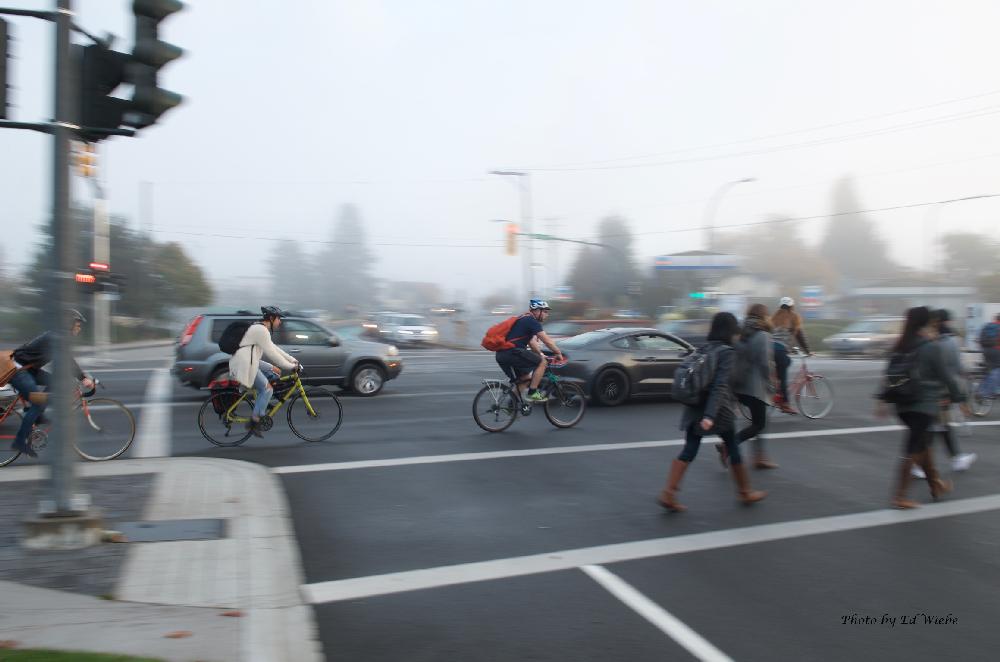Active Living Research ALR is an interdisciplinary team with internationally recognized expertise in public health, transportation, planning, parks and recreation, school activity programs, behavioral science, and obesity prevention. ALR has recently released a research review, summarizing current knowledge on the health benefits and safety of active travel titled Moving Toward Active Transportation: How Policies Can Encourage Walking and Bicycling. BikeMaps.org researcher Dr. Meghan Winters was part of the ALR team that prepared the review, which also examined policies and programs that can help to increase walking and biking rates.
The main findings include:
• A growing number of recent studies have confirmed health benefits specifically for walking and cycling.
• The health benefits of active transportation exceed its risks of injury and exposure to air pollution.
• Safety is a key consideration for promoting active travel. Importantly, places with higher levels of walking and cycling also have greater safety for pedestrians.
• Provision of convenient, safe, and connected walking and cycling infrastructure is at the core of promoting active travel.
• Aside from specific infrastructure for cyclists and pedestrians, the way neighborhoods and communities are built affects levels of active travel.
• Walking or biking for daily travel needs can be promoted as a convenient and competitive option through programs that shift travel behavior.
• Policies that improve public transport, or make car use less attractive, increase the competitiveness of active travel modes.
• Policies to promote active travel will work best when implemented in comprehensive packages; these may include infrastructure and facility improvements, pricing policies, and education programs to achieve substantial shifts towards active modes. 